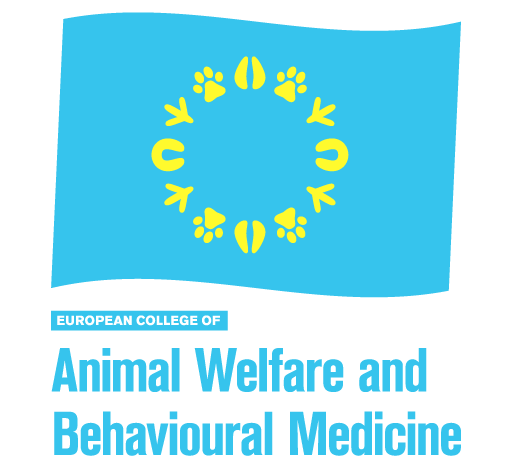COVID-19 Statement from The EUROPEAN COLLEGE OF ANIMAL WELFARE AND BEHAVIOURAL MEDICINE
The Board of the ECAWBM recognize the unprecedented challenges that the current pandemic situation will bring to those responsible for caring for animals. Human safety is of paramount importance and local legislative requirements must be adhered to at all times. Animal welfare should be maintained as much as possible, which may entail changes in ways of working (i.e. animals kept away from the owner’s premises should be tended to by a competent person local to the animals’ location). If it is necessary to travel to tend to animals then appropriate permission may have to be sought from local authorities.
Disruption to production and delivery of animal feed stuffs and medicines may occur, therefore discussion with suppliers and your competent authority at an early stage is important in order for them to gauge quantities needed. Stockpiling of feed stuffs and medicines is not recommended.
When there is a problem with animals transported which are stuck at borders see https://www.eurogroupforanimals.org/news/covid-19-urgent-action-needed-avoid-animal-welfare-crisis-during-transport-live-animals
Current limited evidence suggests that commonly domesticated animals cannot normally act as a source of infection of COVID-19 for humans (3 cases have been reported (http://www.afsca.be/consumenten/dagelijksleven/andere/coronavirus/#huisdieren). However, virus particles may be present on animals that have been in contact with a human carrier (e.g. fomite transfer from fur), therefore, practising good hygiene when handling any animals, including thorough hand washing and/or use of alcohol gels, should be routine. If companion animals are experiencing restricted exercise as a result of the situation, attention should be paid to their feeding and body condition in order to avoid excessive weight gain, as well as mental stimulation which may include feeding games, training new skills, and positive human interactions such as grooming.
If circumstances prevent the proper care of animals then consideration should be given to contacting local animal protection societies or local animal welfare authorities.
Updates can be found on: https://www.fve.org/covid-19-faqs/
